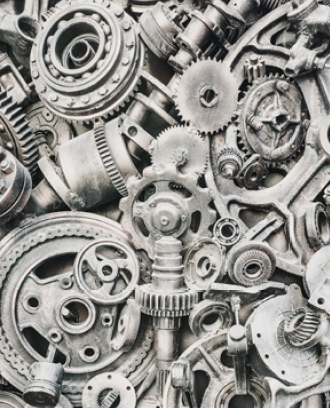[FR] The Franco-German engine: in crisis, certainly, but with no alternative

Nothing is going well between France and Germany, but nothing can go well without them. That could sum up Franco-German relations after eighteen months of war in Ukraine. Admittedly, there have always been numerous and significant disputes between the two countries. But these are now taking on a more worrying dimension, as the foundations of European integration, the principles of security and the commitments to solidarity have been shaken by Russia’s invasion of Ukraine.
In Paris, there is surprise at Germany’s eagerness to propose to eighteen partners the creation of a kind of anti-missile defence shield (European Sky Shield Initiative), based on German, American and Israeli weapons systems. It would also have been appreciated to have been consulted on the drafting of Germany’s first National Security Strategy, published in June 2023. Similarly, there is a certain amount of irritation in Paris at Germany’s decision to buy off-the-shelf American or South Korean military equipment that Berlin realises it needs, rather than opting for European solutions. The future of several major Franco-German programmes, including the Scaf fighter jet and the Male eurodrone, is a cause for concern. In terms of economic recovery, Germany’s intransigence on the new rules of the Stability Pact, currently suspended until December 2023, is a source of considerable irritation to Paris, which, along with a majority of other member countries, would like to see more flexibility in the assessment of the Pact. On the energy front, Germany’s continued opposition to nuclear power was confirmed in April 2023 with the closure of the country’s last three nuclear power plants. By choosing shale gas and coal to respond to the energy crisis caused by the war in Ukraine, Berlin has confirmed a policy that is completely at odds with that of France. Paris is therefore well placed to denounce Germany’s lax attitude towards the Green Deal, with the reopening of coal mines and the automotive industry’s reluctance to comply with European commitments on the end of combustion engines. In short, it is Germany’s overall refocusing on its national interests that is fuelling French concerns, which are widely shared in the rest of the Union.
Germany is not to be outdone in its recriminations against France. At the start of the war in Ukraine, France’s procrastination on Russia, which according to Emmanuel Macron should not be ‘humiliated’, came as a surprise and caused concern. On the subject of Taiwan, when the President declared that ‘the worst thing would be to think that we Europeans should follow suit on this issue and adapt to the American pace and Chinese overreaction,’ there was consternation in Berlin and throughout the Atlantic Alliance countries. Similarly, the president’s change of doctrine, now in favour of Ukraine’s entry into NATO, was given a lukewarm reception in Berlin, as this position put Germany at odds with Kiev. In the missile defence affair, Germany only participated at a low level in the French counter-project for a conference on European air defence on 19 June 2023, where other defence systems were discussed, including the Franco-Italian Mamba system. More generally, Berlin views France with mistrust and disapproval as it continues to spend lavishly at a time when, in Berlin’s view, austerity and budgetary control should be returning two years after the end of Covid.
This mutual mistrust must be put into context. In reality, both France and Germany have been weakened since the war in Ukraine. Germany has lost its Atlantic comfort zone: war is raging on NATO’s borders, Russia is a real threat, and the United States is demanding in terms of defence and budget. France, for its part, has lost its European comfort zone: its role and influence within the EU, through its ambition for strategic autonomy and political Europe, are being seriously challenged. Germany, in particular, is deeply traumatised: trade and pacifism, the two pillars of its post-fascist identity, have been destroyed by the return of war to Europe. It must now rebuild its identity by rearming and mistrusting commercial interdependence. France must stand by its side, especially since there is no alternative to take the lead in European affairs. Poland dreams of doing so, but the openly anti-Brussels policy of the ruling PiS party and the pronounced dysfunctions of liberal democracy currently prevent the country from claiming this role as it stands.




